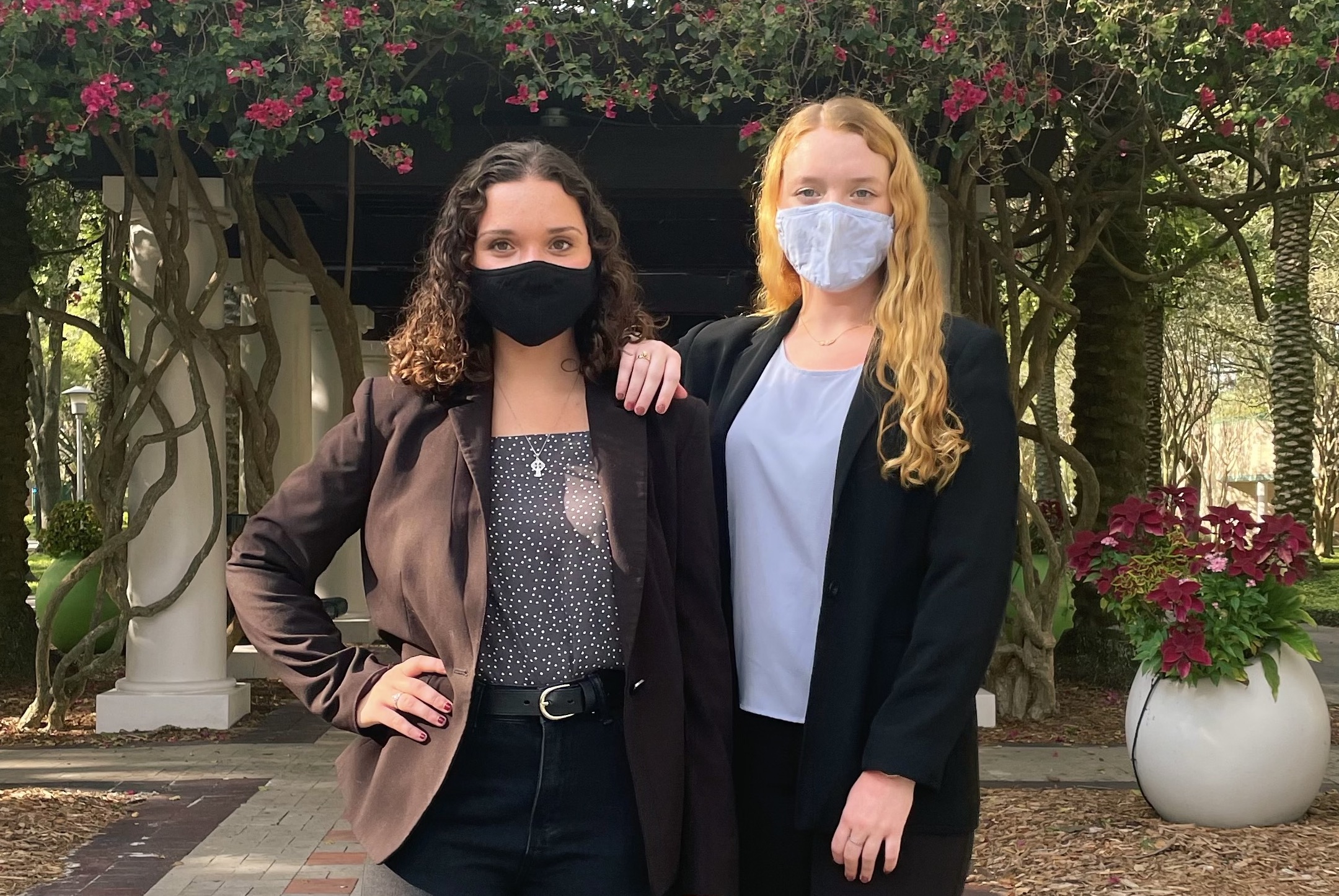Cunningham, Wilson confirmed in vote of confidence

Students made their voices heard by giving Student Body President Julia Cunningham and Vice President Jillian Wilson the confidence to remain in their positions during Student Government’s midterm elections.
Polls were open for students Oct. 12-13 to participate in the vote of confidence (VOC) by checking “yes” or “no” to keep Cunningham and Wilson in office, and the vote ultimately decided to keep the duo in power.
Cunningham and Wilson were out of the office and didn’t respond to Oracle emails by the time of publication.
Votes will be certified in the upcoming week, but initial numbers suggest voter turnout was strong in Tampa, according to Supervisor of Elections Savannah Carr, with 1,190 Tampa votes counting toward the VOC. The results included 697 “yeses,” 128 “noes” and 365 students choosing to abstain.
The St. Pete campus results included 103 “yes” votes, five “no” and 76 abstentions. The Sarasota-Manatee campus had 33 “yes,” seven “no” and nine abstentions.
Beyond the VOC, students also voted for new senators. A total of 27 senators were elected for Tampa, four for St. Pete and two for Sarasota-Manatee, which allowed the Senate to meet quorum, or a minimum of 31 senators, according to Carr.
Senate President Pro Tempore Yelizza’s Mercedes said if the Senate member count falls below 70%, or around 42 senators, there must be an interim election.
Prior to the election, Senate was below quorum with 24 members, which meant a midterm election was required. Once the newly elected members are officially inducted, Senate President Junayed Jahangir said Senate will reach the threshold of 31 senators by the end of the month.
The new senators will begin the process of training through Canvas modules and a retreat after they are all officially hired, which could take a couple of weeks, according to Mercedes.
“Over the summer, [Jahangir] made the Canvas course to streamline the process … for the new upcoming senators that are going to be in the third and the fourth term,” she said. “Every single senator is required … to do all the training.
“We also have the Senate retreat, and that’s pretty much when we show them and say ‘Hey, this is Senate and this is what you’re supposed to do.’ Hopefully, we can get all that done as soon as they get hired … the sooner we get that done, the faster we can get the Senate moving.”
The Senate has struggled in the past to maintain quorum due to multiple members resigning or being dropped, according to Jahangir.
“For the last two years, it’s been very difficult during the virtual environment. The whole culture shifted in the Senate, in the sense that participation went down, which isn’t just unique to Student Government — participation on campus overall went down,” he said.
The Senate started with around 36 senators before the summer began, and the number fell to 24 senators before the recent election.
Jahangir said numbers and participation in the Senate continually decreased due to issues with eligibility concerning academic performances, as well as students choosing to resign due to mental health issues.
“Students were having academic and mental obstacles that were coming across because of the whole virtual setting. It was just not as engaging anymore, so a majority of the drops were due to health concerns as well as academic concerns in which they just weren’t eligible anymore,” Jahangir said.
“The good thing is that while we did dwindle down to 24 [senators], they were hyperactive and I really enjoyed the last few weeks we were out of quorum. We couldn’t look at the official business [while out of quorum], but certain things were still ongoing in the background.”
He hopes the energy and morale of the smaller group of senators is something that can be continued even as Senate begins to become less vacant.
“I think this is something that we really enjoyed, and this is an aspect that we will continue having even if we have all the seats filled,” Jahangir said. “We will still keep the meetings hybrid, so if someone is sick or has other emergencies they may join virtually.”
Looking ahead, he said it is a good sign Senate is beginning to fill up again because beyond having the ability to resume official Senate business, morale and pride are something that will continue to be boosted with the participating senators.
“Although it’s going a bit slow because we’re doing this for the first time, we are all trying to be patient and be supportive of each other,” Jahangir said.







